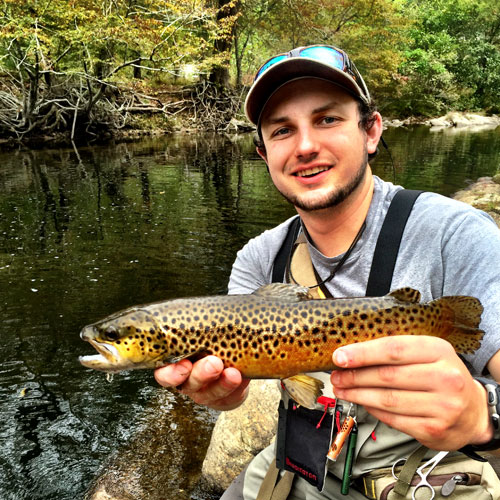Fly fisherman don’t need to be told how important clean water is to our sport. The trout, smallmouth, and musky that inhabit our mountain rivers and streams are ever dependent on clean water sources that are free of pollution and over use for fish populations to thrive. It seems, in recent years that, the damage being done to our water systems in Western North Carolina is fully being realized by those, not only in the fly fishing community, but also in almost all other outdoor recreational pursuits as well. I’ve noticed, as a guide, how divided some groups within the outdoor scene have become when it comes to how one chooses to enjoy our natural resources. I’m sure that you are all well aware of the stereotypes that come with some outdoor sports: fly anglers are snobby, hunters kill for the sake of killing, all hikers and backpackers are crazy hippies, rafters and kayakers clog streams and spook all our fish, etc. Often, we divide ourselves into different political or idealistic groups that come with our chosen hobbies. It’s easy to forget the one resource that unites all of us and is worth coming together for: clean water.
I recently had a chance to volunteer with the French Broad River Keepers in Asheville, North Carolina, to paddle down a creek known for excessive sedimentation and implement a process called “live staking” to try and control the source of erosion before it could enter the French Broad River. The others that came to volunteer had somewhat different backgrounds than what one might expect. A mix of your typical granola paddlers, hippy tree huggers types along with fellow fly-fishing guides and hunters all coming together for a common purpose. That seems like such a far fetched idea in today’s society where our political ideas tend to divide us seemingly beyond any sort of common ground. What we found more common is our love, and need, for clean mountain rivers and streams that exceeds our political party lines. Despite our personal political beliefs, we all had an understanding of the challenges our streams face from pollution, sedimentation, unsustainable agriculture, mine tailing waste, and urban development (just to name a few). Every outdoor recreational activity in Western North Carolina thrives when streams are healthy. Hunters need clean water resources for game animals, which come from healthy forest and ridgeline ecosystems that hikers and wildlife/wildflower viewers enjoy. These same ecosystems are needed to provide thriving wild trout populations. Healthy trout rivers eventually turn into equally healthy smallmouth and musky waterways that rafters, kayakers, fly anglers, and conventional anglers tend to frequent.
When you start putting the pieces together, it becomes easier to see that we all have a lot more in common with each other than we might realize. When it seems like the whole country has been divided on political sides that have unfortunately seeped into the outdoor industry: our need for clean water supersedes it completely. We, as anglers, have a responsibility to protect our watersheds, which will in turn, affect everyone else in the outdoor recreation world in a very positive way. There are many fantastic volunteer opportunities with various organizations all across Western North Carolina that you can engage in. There has never been a better time, nor a more necessary need, for all of us to come together to protect the rivers and streams we love and enjoy.
Ethan Hollifield is a native North Carolinian from Spruce Pine. While earning a degree in Parks and Natural Resource Management from NC State, he was a member of the three-time national championship-winning bass fishing team “BassPack”. Ethan currently guides for Stonefly Outfitters in Burnsville, North Carolina.
